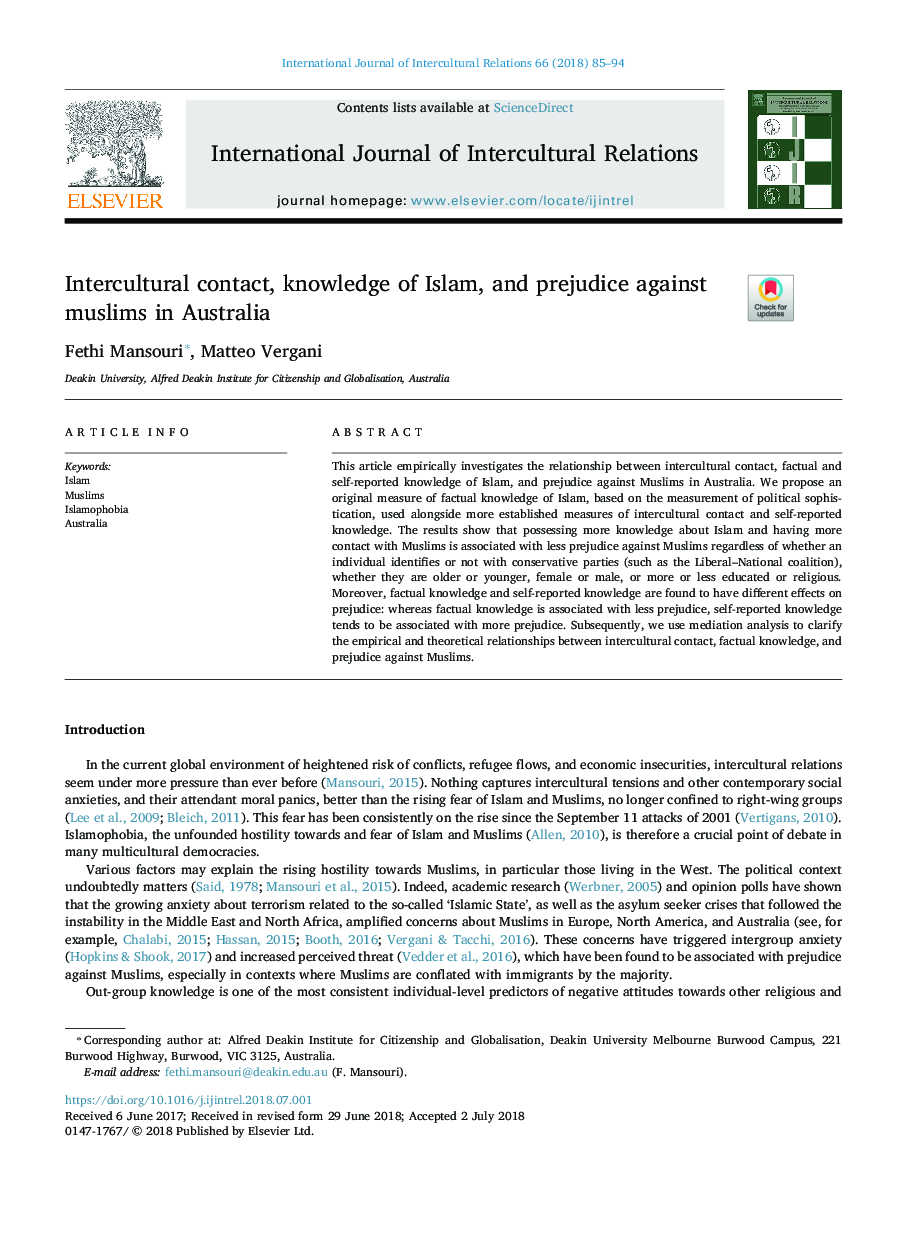| Article ID | Journal | Published Year | Pages | File Type |
|---|---|---|---|---|
| 7323593 | International Journal of Intercultural Relations | 2018 | 10 Pages |
Abstract
This article empirically investigates the relationship between intercultural contact, factual and self-reported knowledge of Islam, and prejudice against Muslims in Australia. We propose an original measure of factual knowledge of Islam, based on the measurement of political sophistication, used alongside more established measures of intercultural contact and self-reported knowledge. The results show that possessing more knowledge about Islam and having more contact with Muslims is associated with less prejudice against Muslims regardless of whether an individual identifies or not with conservative parties (such as the Liberal-National coalition), whether they are older or younger, female or male, or more or less educated or religious. Moreover, factual knowledge and self-reported knowledge are found to have different effects on prejudice: whereas factual knowledge is associated with less prejudice, self-reported knowledge tends to be associated with more prejudice. Subsequently, we use mediation analysis to clarify the empirical and theoretical relationships between intercultural contact, factual knowledge, and prejudice against Muslims.
Keywords
Related Topics
Social Sciences and Humanities
Business, Management and Accounting
Business and International Management
Authors
Fethi Mansouri, Matteo Vergani,
